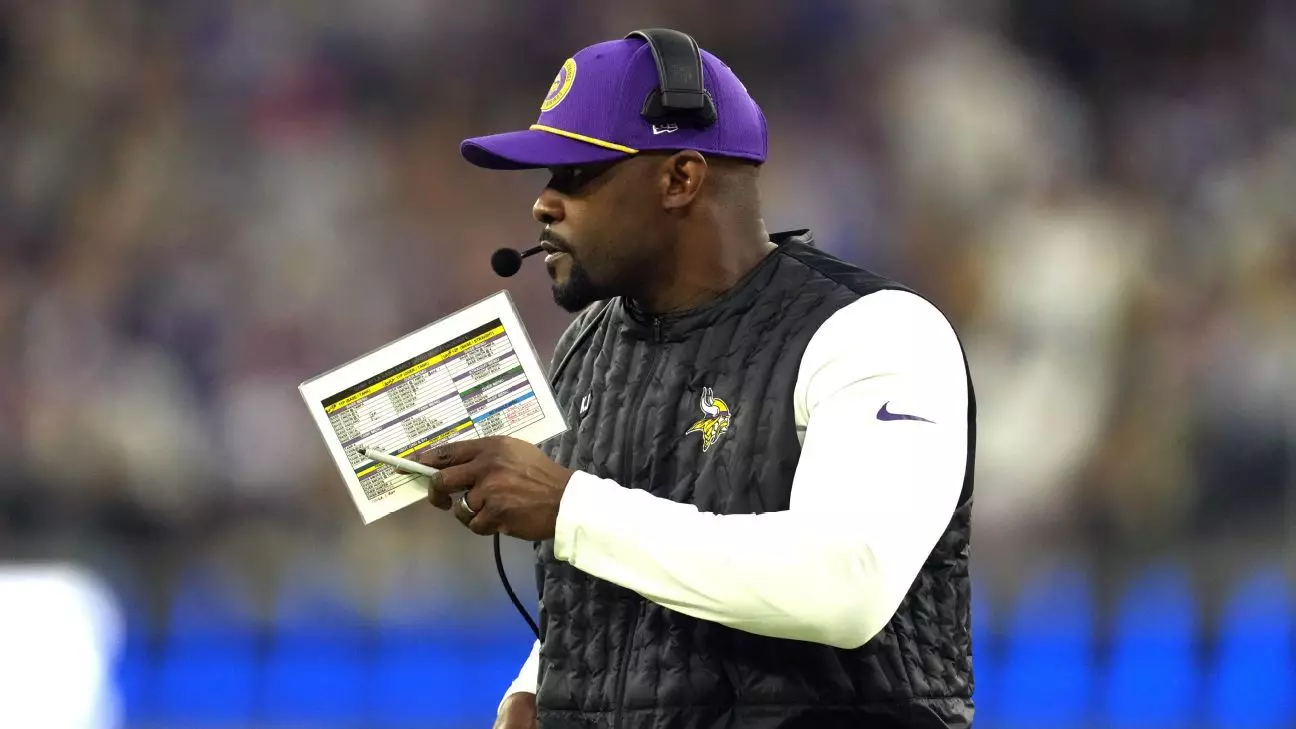In a landmark move that may ripple across sports and employment law, a federal appeals court has cast serious doubt on the National Football League’s longstanding arbitration practices, prompting widespread calls for accountability within one of America’s most lucrative sports leagues. The 2nd U.S. Circuit Court of Appeals in Manhattan has decisively ruled that the NFL’s internal dispute resolution mechanisms are fundamentally flawed, especially when it comes to claims of racial discrimination brought forth by Black coaches like Brian Flores.
This decision is more than procedural; it strikes at the core of the NFL’s efforts to shield itself from meaningful scrutiny. By refusing to accept the league’s arbitration process as fair or impartial, the court signals that systemic bias cannot be hidden behind flimsy legal barriers. The court’s dissatisfaction with the league’s rules—especially the stipulation that commissioner Roger Goodell adjudicates these serious claims—sends an unmistakable message: transparency and justice cannot be sacrificed for the sake of protecting powerful institutions.
The judiciary’s critique isn’t merely about procedural rights; it’s a direct challenge to the league’s attempt to insulate itself from the very consequences of its alleged discriminatory practices. For too long, the NFL has coasted on its reputation and lucrative image, neglecting the deep-rooted issues of racial inequity that persist within its ranks. This ruling shines a spotlight on how the league’s internal processes might be inherently biased, deliberately designed to slow down or dismiss valid claims of racial injustice.
Why This Ruling Signifies a Turning Point
The significance of this court decision extends well beyond Brian Flores’ legal plight. Many critics argue that the NFL, like many other powerful organizations, has relied on a flawed arbitration system that favors insiders—particularly those at the top, such as the commissioner—to control damage and silence dissent. By dismissing the legitimacy of the league’s arbitration clauses, the court affirms a critical principle: true accountability cannot be delegated exclusively to the same entity accused of wrongdoing.
Flores’ case is emblematic of a broader struggle to confront systemic racism embedded in the culture of the NFL. His courageous decision to challenge the league, despite the personal risks involved—such as jeopardizing his coaching career—embodies a broader moral stance that transcends football. Flores’s willingness to speak out is a testament to his conviction that justice must prevail, regardless of how powerful the opposition may be. His story underscores how systemic biases extend beyond individual teams; they are baked into the league’s very legal structures.
The court’s decision also challenges the league’s narrative that it is committed to fairness and equality. Critics point out that when the NFL designates its own chief executive as the sole arbitrator, it essentially acts as both judge and jury—an inherently unethical arrangement, especially when allegations concern discrimination. This is a classic example of institutional bias cloaked in legalistic language, and the judiciary’s stance makes it clear that such practices are no longer acceptable in a society that values fairness and equal rights.
The Broader Implications for Race and Justice in Sports
The ripple effects of this ruling reach into the broader spheres of workplace discrimination, civil rights, and social justice. Sports, long regarded as a microcosm of society, often reflect larger societal issues—inequities, prejudices, and systemic barriers. The NFL’s case has attracted attention because it exposes how entrenched these issues are in elite institutions, and how they are often shielded by complicated legal and bureaucratic processes.
Flores’ lawsuit and the subsequent legal hurdles have become a rallying point for advocates demanding real change. It’s a stark reminder that superficial diversity efforts and public relations campaigns are insufficient unless accompanied by genuine structural reform. The fight for racial equality in coaching and leadership positions in the NFL echoes ongoing debates across many industries, exposing the need for broader reforms.
This case also emphasizes the importance of judicial oversight in maintaining checks and balances on powerful organizations. Courts must step in when internal mechanisms fail to deliver justice, especially in cases involving systematic discrimination. The judiciary’s willingness to scrutinize and reject the league’s flawed arbitration protocols could set a precedent that encourages more victims of workplace bias—whether in sports, corporate America, or other sectors—to seek rightful redress.
In raising these issues, the NFL is navigating a critical crossroads. Failing to heed the court’s warnings risks further eroding public trust and confirming suspicions that the league prioritizes its reputation over genuine equality. Conversely, embracing transparency and confronting its past failings could potentially serve as a catalyst for real change—a cinematic shift from behind-the-scenes cover-ups to a future where diversity and justice are genuinely prioritized.

